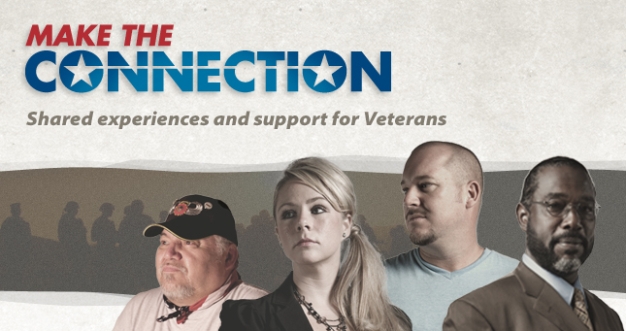In the wake of disaster or tragedy, the process of healing and rebuilding is often complicated by guilt, depression, or anger. While the event itself may be over, the subsequent financial and personal challenges can take time to address and the feelings of stress or anxiety may linger.
Processing a disaster’s impact on your community and loved ones can take time, but it is an essential step toward regaining a sense of normalcy. This is especially true for members of the National Guard and Reserve, who are commonly called on to restore order in the face of tragedy. That’s why it is important for these first responders to be aware of available resources and support to help deal with the aftermath of traumatic experiences.
One such resource is MakeTheConnection.net, which supports service members, Veterans, and their loved ones through hundreds of videos featuring Veterans talking about their personal experiences with mental health treatment and recovery. The stories of challenge and triumph on MakeTheConnection.net can provide reassurance and encouragement in difficult times, showing that the road to recovery may be tough, but there are resources available to help every step of the way:
- For Herman, the transition from fixing aircraft to helping to maintain order in the aftermath of Hurricane Katrina was jarring. The memory of witnessing the anguish of his fellow citizens was hard to shake until he found support to help him process his experience.
- During Hurricane Hugo, Valencia began to feel helpless and hopeless, and she had thoughts of suicide in its aftermath. VA treatment helped her find ways to manage anxiety and begin to enjoy life again.
- Cliff assisted with recovery efforts at the Pentagon after 9/11. He tried to deal with the continuous nightmares and trouble sleeping that followed by drinking heavily. He even wanted to end his life. It wasn’t until he was diagnosed with PTSD and received treatment that Cliff came back a stronger man and soldier.
Make the Connection is a great resource for someone who may be dealing with stressful situations or mental health challenges. However, people in crisis need immediate attention from a medical or mental health professional. Please learn more about VA’s resources and information for Veterans who may be at risk for suicide as well as these signs of suicide risk:
- Feeling hopeless, trapped, or like there’s no way out
- Having persistent or worsening trouble sleeping or eating
- Feeling anxious or agitated
- Feeling rage or anger
- Engaging in risky activities without thinking of the consequences
- Increasing alcohol or drug misuse
- Withdrawing from family and friends
If you are concerned that a Veteran is in crisis or at immediate risk for suicide, call the Veterans Crisis Line at 1-800-273-8255 and Press 1. Caring, qualified VA responders can help you determine ways to keep someone safe and connect the Veteran you care about with support.
VA’s VAntage Point blog has the latest information on hurricane impact to VA facilities and services. For those impacted by Hurricane Harvey, click here. For information on Hurricane Irma, click here. For the latest on VA’s response and inspiring stories of service to Veterans impacted by the hurricanes, read more on the blog.
Topics in this story
More Stories
Summer Sports Clinic is a rehabilitative and educational sporting event for eligible Veterans with a range of disabilities.
Report examines the input of over 7,000 women Veterans: They are happier with VA health care than ever before.
Veterans and caregivers, you can help shape the future eligibility requirements for the VA Caregiver Support program.






